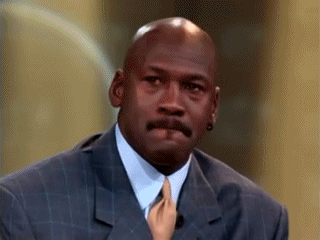theworldismine13
God Emperor of SOHH
Finance Experts Attribute Church Donations, Zero Appreciative Investments to Black’s Lack of Money | Black Blue Dog
The African-American dollar goes a long way. Just ask Phil Griffith, president of MSNBC. His network saw a 20 percent increase in viewership for 2012 due to a whopping 60.5 percent increase in African American viewers.
When shes not petitioning networks to take stereotypical shows of African-Americans off of the air, author and financial literacy educator Sabrina Lamb spends her time teaching African-Americans how to discuss money with their children. African-Americans, in general, perform better in the area of spending rather than saving when compared to any other racial group, Lamb told Pittsburgh Post-Gazette. Lamb is also the author of Do I Look Like an ATM?: A Parents Guide to Rising Financially Responsible African-American Children.
The problem stems from the fact that young black people are less likely than their white counterparts to receive money management education in school or from their own parents, Lamb said. Lamb, founder and CEO of New York-based financial literacy education firm WorldofMoney.org, penned her book based on years of blunt conversations and candid observations of children and parents who have attended her seminars and counseling sessions. She said parents have oftentimes approached her after the seminar in tears. Parents have come to my Money Matters forums and cried because of the negative experiences they have had with money, she said. They remember fathers who didnt save enough to send them to school. They remember being teased by their schoolmates because they didnt have the latest clothes. Im guiding parents to embrace the negative emotions they are holding to make revolutionary changes in their relationship with money.
Selig Center for Economic Growth, an organization that chronicles consumer buying power, reported that by 2012, African-American spending exceeded the gross domestic products of Spain and Canada at $1.1 trillion a year. The top five categories were for goods that have zero appreciative value: rental housing, food, cars, clothing and health care. Lynnette Khalfani Cοx attributes African-Americans generous donation to the church to the communitys inability to save money. The problem is when churchgoers give tithes and offering to the church as well as support their adult children and help a sister-in-law with a loan that will not be repaid and pay off a nieces student loan as well, Cοx said. There is such a thing as giving too much or giving until it hurts, when you are not financially stable to begin with.
There is nothing righteous about struggling for your financial security, Lamb said. It is actually a perfect storm of low self-esteem, lack of knowledge and generational conditioning. Lamb continued: If we spent $1.1 trillion on land, it would be a different world. We are spending money on things that have zero value. Our children are watching the behavior of the adults and adults are expressing their own vulnerabilities and belief systems with these [misdirected] purchases.


